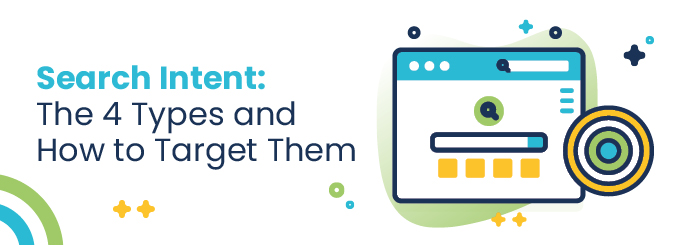
Every business wants to be seen by its target audience - but how do you make sure that your website is the one that people want to click on?
There are so many websites out there that it can often feel like a battle to get anywhere near page one, especially if your keywords are very popular and/or broad. This is where search intent optimisation comes in handy.
Here's everything you need to know about search intent...
What is search intent?
Search intent can be defined as the action a web user is looking to take. For example, you could be searching for clothes, looking for directions, or researching a topic for an article you're writing. In all cases, a search engine's goal is to nail down your search intent and providing the exact content you need.
For instance, if you're searching for directions because you're planning a hike, you'll want to see a map and clear instructions - not a blog post about someone else's hiking experience!
An important part of search engine optimisation (SEO) is giving your users precisely what they need, whether it be a product, a service or just some information. It goes further than this, too - by tailoring your content to the user's needs and intentions, you can maximise brand engagement and potentially increase conversions on your website.
How can analysing search intent help your business?
- You can make the user's experience more positive and fulfilling - you're giving them exactly what they're looking for, resulting in a better impression of your business
- You can improve your content engagement metrics
- Your content can become a valuable resource for your target keyword(s)
Next, let's look at some of the most common search intent types.
The Different Types of Search Intent
1. Informational search intent
Informational search intent is put into action when a searcher is looking for a specific piece of information. These queries usually start with the four Ws: why, where, what and when.
When a user has informational search intent, depending on the topic, they may be looking for a quick 'yes or no' answer or a more in-depth explanation. Consider what information your target users may be seeking - what unique content can you offer them that meets the needs of their query?
If the query warrants detail, then you can target it with blog posts or pages that explain topics within your industry or answer commonly-asked questions.
Informational queries are also brilliant opportunities to get featured at the top of the search engine results. Search engines rank their SERP content on how efficiently each result answers the user's question. Bear this in mind when collating content for informational search intent - you may well end up at the top of page one!
2. Navigational search intent
Have you ever typed 'Google' into the Google search bar to get to the Google homepage? (Don't worry, we've all done it!)
This would be an example of a navigational search query, when the user is searching for a specific site through a search engine.
If your site is difficult to find, you could miss out on valuable users, quotes, leads and conversions. They're already searching for your name, so they're clearly interested in your business - it would be a huge shame if they weren't able to find your website straight away!
The easiest way to do this is to make sure your URL matches your business name, and that your website pages include your business name. This will help to ensure that your site ranks highly when people search for you.
3. Transactional search intent
Queries that include 'for sale' or 'buy' imply that the user is looking to make a purchase then and there. If you sell something, you'll want your order pages to appear for these searches straight away as it will minimise the amount of clicks needed for a transaction to occur.
The best way to target these queries organically is through optimised product pages, meta tags, alt text descriptions and implementing local SEO strategies. If you have the budget, look into using PPC to target these search terms as they can be very competitive.
Also, it's helpful to remind yourself what a conversion looks like for you. Are you aiming to register interest, to generate quote requests, or to sell a particular product? Once you've nailed down your website's goal, try to provide the relevant information in the most user-friendly way possible.
4. Commercial search intent
Online window shopping is a very popular pastime. This is when a searcher isn't looking to buy just yet, but wants to research around the product.
Common terms in commercial queries include 'best', 'top' and 'review'. This is the time to persuade, because the user wants to research your product or service before committing to a purchase.
Types of content that rank well for these queries include listicles, reviews, and articles comparing product specifications.
If you sell a product but you don't want to promote your competitors, think outside the box and expand your article's focus. For example, if you sell curtains, write an article on the 'Top 10 Home Furnishings to Refresh Your Living Room' - then you don't have to promote your competitors!
Is user search intent really that important?
Yes - search intent is a crucial part of SEO that many people overlook. When you align your content to what your users actually need, you will reap the results, and your users will thank you for it!
READ MORE: How to Choose Keywords for Your Content